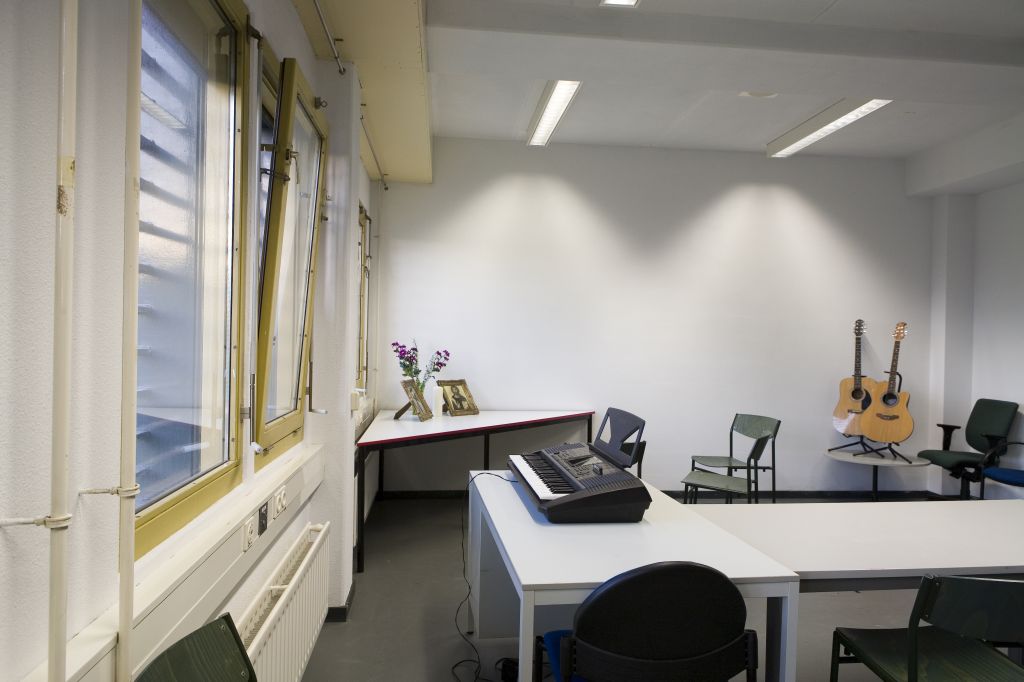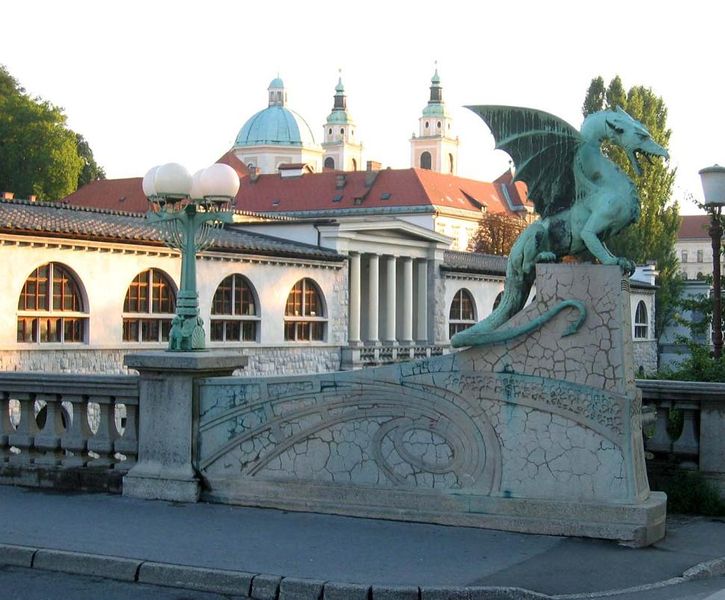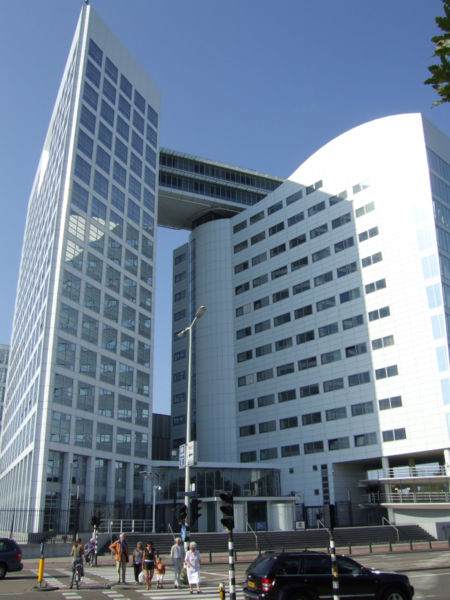By Otto Spijkers
Today, the United Nations will launch a new website, the Audiovisual Library of International Law. It is made essentially by the Codification Division of the Office of Legal Affairs. Continue reading

By Otto Spijkers
Today, the United Nations will launch a new website, the Audiovisual Library of International Law. It is made essentially by the Codification Division of the Office of Legal Affairs. Continue reading
By Otto Spijkers
On the ICTY’s website, the indictment is summarized as follows:
Florence Hartmann was indicted for knowingly and willingly interfering with the administration of justice by disclosing information in violation of an order of the Appeals Chamber dated 20 September 2005 and an order of the Appeals Chamber dated 6 April 2006 through means of authoring for publication a book entitled Paix et Châtiment, published by Flammarion on 10 September 2007, and by authoring for publication an article entitled Vital Genocide Documents Concealed, published by the Bosnian Institute on 21 January 2008.
This summary does not mention that Florence Hartmann was the spokesperson for the Prosecutor of the ICTY from 2000 to 2006, but that is no secret. Continue reading
By Otto Spijkers
The Grotius Centre for International Legal Studies of Leiden University, and the research project on the United Nations and the Evolution of Global Values are organizing an international conference on The United Nations and the Evolution of Global Values, which will take place at the Peace Palace in The Hague, 11-12 December 2008. Experts in the fields of ethics, public international law and international relations will present their views on the concept ‘global values’ and its content, the influence of these values on international law, and on the role of the United Nations in defining and promoting these values. President of the International Court of Justice, Dame Judge Rosalyn Higgins (UK), Frank Majoor (Netherlands Ambassador to the UN in New York), Joris Voorhoeve (former Minister of Defence of the Netherlands), Thomas Franck (NYU Law School), Leif Wenar (King’s College London), John Keane (University of Westminster), and Thomas Weiss (City University of New York and Director of the United Nations Intellectual History Project) are included in the programme. The conference is the international follow-up to the national workshop on The United Nations and Global Values of January 2007.
UPDATE: The entire programme is now available at www.globalvaluesconference.nl.
Source: Website Leiden University.
By Otto Spijkers
Mr. Maxime Verhagen, the Dutch Minister of Foreign Affairs, is blogging about his experiences in New York during the 63rd Session of the General Assembly. As is the case with most weblogs, people can comment on his posts, anonymously if they want. I guess that if you allow people to freely express their opinion, you’ll always get comments that lack ‘nuance’. Let me give some examples. Continue reading
By Otto Spijkers
Yesterday, the District Court in The Hague published two judgments relating to Srebrenica and the responsibility of the Netherlands for the acts of ‘Dutchbat’, the Dutch UNPROFOR peacekeepers stationed there at the time of the genocide in 1995. The two cases, which are almost identical, are M. M.-M., D.M and A.M. (Mustafic) versus the State of the Netherlands (case no. 265618) and H.N. (Hasan Nuhanovic) versus the State of the Netherlands (case no. 265615), both judgments of 10 September 2008.
By Otto Spijkers
As the whole world knows, Radovan Karadžic is currently a detainee at the Detention Unit of the ICTY. The rights of detainees are determined by the Rules of Detention. These Rules also define the word ‘detainee’ as ‘any person detained awaiting trial or appeal before the Tribunal.’ Rule 5 prescribes that ‘all detainees, other than those who have been convicted by the Tribunal, are presumed to be innocent until found guilty and are to be treated as such at all times.’ Because they are presumed innocent, detainees have a certain freedom of movement, albeit very limited (they have no internet access, for example, which seems to be a basic necessity these days, perhaps even a human right).
Rule 4 prescribes that ‘a detainee is entitled to observe his religion or beliefs.’ Rules 66-68 of the Rules of Detention describe in some detail what this right to ‘spiritual welfare’ entails exactly.
I was intrigued by a picture of the Spiritual Room, one of the common rooms the detainees share, where the detainee can enjoy his ‘spiritual freedom’ and meet with accredited representatives of his faith.
This is what the Spiritual Room looks like (I have no comment; I just think this picture is a work of art):

By Otto Spijkers
 Next week, the 2nd Global International Studies Conference will start in Ljubljana, Slovenia. The conference is organized by the World International Studies Committee (WISC), and the theme of the conference is What Keeps us Apart, What Keeps us Together (International Order, Justice, Values). It is enormous. There will be three Plenary Roundtables: one on international order, another on global justice, and a third on global values. Next to those roundtables, there will be, if I calculated correctly, around 200 panels, with around four paper presenters each. So that’s around 800 papers being presented in total, if my calculations are correct. And I understood that 71 countries are represented among those 800 presentations. The programme director wrote that he needed 5127 emails to receive and answer questions by all these presenters (I assume they are about deadlines and that sort of thing.) 350 papers are already available online, so I am sure there is something worth reading for everybody. I don’t know what happened to the remaining papers. Perhaps they are being written this weekend?? One of the 350 written and uploaded papers is called What’s Running the World, and it is about global values, world law, the United Nations, and global governance (like the PhD I am currently working on). The conference will be held in the Faculty of Social Science of the University of Ljubljana, with a reception in Ljubljana Castle. It looks like it will be an amazing conference in an amazing city!
Next week, the 2nd Global International Studies Conference will start in Ljubljana, Slovenia. The conference is organized by the World International Studies Committee (WISC), and the theme of the conference is What Keeps us Apart, What Keeps us Together (International Order, Justice, Values). It is enormous. There will be three Plenary Roundtables: one on international order, another on global justice, and a third on global values. Next to those roundtables, there will be, if I calculated correctly, around 200 panels, with around four paper presenters each. So that’s around 800 papers being presented in total, if my calculations are correct. And I understood that 71 countries are represented among those 800 presentations. The programme director wrote that he needed 5127 emails to receive and answer questions by all these presenters (I assume they are about deadlines and that sort of thing.) 350 papers are already available online, so I am sure there is something worth reading for everybody. I don’t know what happened to the remaining papers. Perhaps they are being written this weekend?? One of the 350 written and uploaded papers is called What’s Running the World, and it is about global values, world law, the United Nations, and global governance (like the PhD I am currently working on). The conference will be held in the Faculty of Social Science of the University of Ljubljana, with a reception in Ljubljana Castle. It looks like it will be an amazing conference in an amazing city!
By Otto Spijkers
 This morning, at 11.00am local time, the District Court in The Hague decided on the immunity of the United Nations before the Dutch courts, in a case between the Mothers of Srebrenica and the Netherlands/United Nations. In this case, the Mothers of Srebrenica argue that both the United Nations and the Netherlands failed to prevent the genocide in Srebrenica in the mid-nineties. Since the United Nations did not appear in the local court, it was the Netherlands that argued for the Organization’s immunity. This morning, all that was decided upon was this immunity of the United Nations. The judgment is available in Dutch, Bosnian, and English. Let me already give away the answer: the United Nations had the right to claim immunity and cannot be brought before a Dutch court. This result is not so interesting, because it was the expected result. But the way the result was reached is interesting, because the local judge had to assess all sorts of international treaties, incl. the UN Charter and the Genocide Convention, and case law, incl. the ICJ’s judgment, Al Adsani, and Behrami, the last of which the judge interpreted as saying that ‘states cannot […] be held liable for the actions of national troops they made available for international peace-keeping missions’, which seems problematic even if the case is continued without the UN. Since most of our readers do not speak any of the first two languages (Dutch, Bosnian), I will reproduce below the relevant parts of the English translation of the judgment. Continue reading
This morning, at 11.00am local time, the District Court in The Hague decided on the immunity of the United Nations before the Dutch courts, in a case between the Mothers of Srebrenica and the Netherlands/United Nations. In this case, the Mothers of Srebrenica argue that both the United Nations and the Netherlands failed to prevent the genocide in Srebrenica in the mid-nineties. Since the United Nations did not appear in the local court, it was the Netherlands that argued for the Organization’s immunity. This morning, all that was decided upon was this immunity of the United Nations. The judgment is available in Dutch, Bosnian, and English. Let me already give away the answer: the United Nations had the right to claim immunity and cannot be brought before a Dutch court. This result is not so interesting, because it was the expected result. But the way the result was reached is interesting, because the local judge had to assess all sorts of international treaties, incl. the UN Charter and the Genocide Convention, and case law, incl. the ICJ’s judgment, Al Adsani, and Behrami, the last of which the judge interpreted as saying that ‘states cannot […] be held liable for the actions of national troops they made available for international peace-keeping missions’, which seems problematic even if the case is continued without the UN. Since most of our readers do not speak any of the first two languages (Dutch, Bosnian), I will reproduce below the relevant parts of the English translation of the judgment. Continue reading
By Otto Spijkers
 Yesterday, the judges of the International Criminal Court’s Trial Chamber ordered the release of Lubanga, who was about to become the first person ever to be put on trial by the ICC (for the background, see my co-blogger’s earlier post on the ‘secret evidence incident‘). Lubanga is not actually a free man at this moment, because the Prosecutor has been offered the opportunity to appeal the Trial Chamber’s decision to release him. On 17 July, the Rome Statute, i.e. the treaty containing the Statute of the International Criminal Court, celebrates its 10th Anniversary. The two facts just mentioned have little to do with each other, but one cannot help notice: Isn’t it ironic that the two facts take place within days of one another? Indeed, it is a bit like rain on your wedding day. Since I am a supporter of the ICC, I prefer not to exploit this coincidence for more cheap shots (even though it is fun to do), and instead focus on a speech delivered by our Minster of Foreign Affairs, Maxime Verhagen, during the celebration of this anniversary, which took place at the Peace Palace in The Hague, Netherlands. Continue reading
Yesterday, the judges of the International Criminal Court’s Trial Chamber ordered the release of Lubanga, who was about to become the first person ever to be put on trial by the ICC (for the background, see my co-blogger’s earlier post on the ‘secret evidence incident‘). Lubanga is not actually a free man at this moment, because the Prosecutor has been offered the opportunity to appeal the Trial Chamber’s decision to release him. On 17 July, the Rome Statute, i.e. the treaty containing the Statute of the International Criminal Court, celebrates its 10th Anniversary. The two facts just mentioned have little to do with each other, but one cannot help notice: Isn’t it ironic that the two facts take place within days of one another? Indeed, it is a bit like rain on your wedding day. Since I am a supporter of the ICC, I prefer not to exploit this coincidence for more cheap shots (even though it is fun to do), and instead focus on a speech delivered by our Minster of Foreign Affairs, Maxime Verhagen, during the celebration of this anniversary, which took place at the Peace Palace in The Hague, Netherlands. Continue reading